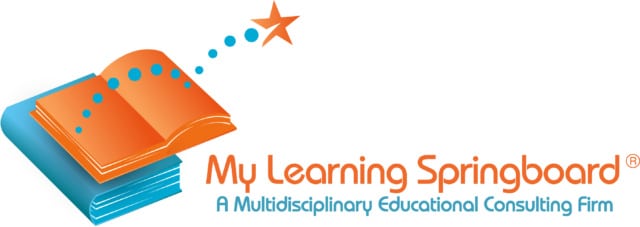College Level Readiness in Reading and Writing
 When people talk about college writing readiness, they normally characterize the principal difference betwixt high schoolhouse and higher writing by maxim that college writing is heavily based in analysis. But besides often, the conversation gain without defining a key term. What does "assay" hateful in this context? And how tin parents and tutors help high school writers build analytical skills for college writing readiness?
When people talk about college writing readiness, they normally characterize the principal difference betwixt high schoolhouse and higher writing by maxim that college writing is heavily based in analysis. But besides often, the conversation gain without defining a key term. What does "assay" hateful in this context? And how tin parents and tutors help high school writers build analytical skills for college writing readiness?
When I consider the sort of analytical writing that happens in college classrooms, I am reminded of the definition offered by David Rosenwasser and Jill Stephen in the first chapter of their book Writing Analytically. "To analyze something is to ask what that something means," they write. "It is to ask how something does what it does or why it is as information technology is. Analysis is, so, a form of detective work that pursues something puzzling, something you are seeking to sympathise rather than something you believe y'all already have the answers to." While high school teachers spend a great deal of time teaching critical thinking and assay techniques, loftier school writers tend to deploy those skills by performing the acts of analysis and writing every bit divide steps — by figuring out and planning all of their ideas, then recording them. High school writers would probable be surprised, and possibly intimidated, by the notion of "thinking on the page" in this way. Accordingly, a primal aspect of facilitating college writing readiness is helping students go comfortable with this concept, and comfy trying new writing and learning approaches overall.
Parents and tutors can help their high schoolers develop a number of writing techniques that make information technology easier to engage in college-level analytical writing. For instance, they can introduce cursory, low-pressure exercises that make information technology easy to perform thinking on the page, to generate material that tin can become part of a more formal composition, and to conceptualize the writing process as a series of pocket-size, manageable steps. They tin can strengthen high schoolhouse writers' executive performance skills by showing them how to prepare — and run into — deadlines for each distinct stride of a writing project. They can help high school writers identify sources of support at their institution, such as writing centers. They tin help to remediate weaknesses in reading that inhibit students from fully understanding and engaging with the texts they write nearly. They tin discover exemplar essays and help writers examine and larn from them. They tin help writers move from perceiving revision as a one-fourth dimension activity to perceiving it equally a procedure of rethinking and rethinking over again, of crafting several drafts, of revisiting a slice of writing and re-engaging with its ideas and its object of analysis until the writer feels that they are saying what they truly want to say.
These techniques pay off beyond the affair of college writing readiness; they assist with college readiness overall. Students can utilize low-pressure writing exercises to reflect on class readings and to prepare for class discussions, for example, and they tin utilize their strengthened reading skills to navigate challenging technical documents. Stronger planning and time direction skills are helpful in countless situations.
More than chiefly, these approaches bring nigh shifts in thinking that fix them for the challenges of adult life. Dividing big tasks into manageable pieces prepares students for a range of professional person situations. Visiting a writing center or a peer tutor helps a educatee realize that asking for help is a sign of initiative, not weakness, and that they don't have to struggle alone. Moving from a rigid revision process into a more recursive and rewarding ane teaches writers the importance of flexibility and perseverance. After all, in life, it often takes us more than two tries to get something right. It is non lost on me that when it comes to the Mutual Application personal statement — often the highest-stakes essay that they have equanimous up to that point in their lives — high school writers mostly become through 6 to twelve drafts before the piece is ready to share with colleges.
"Analysis is, then, more than merely a set of skills: information technology is a frame of heed, an mental attitude toward feel," Graff and Birkenstein conclude. Past helping high school writers cultivate both this ready of skills and this attitude, parents and tutors are helping them non but to develop college writing readiness simply to prepare for the earth beyond.
By Elizabeth Walters, Private Tutor and Writing Coach
Summary

Article Name
What Does College Writing Readiness Await Like?
Description
Parents and tutors tin can help their loftier schoolers develop a number of techniques that get in easier to engage in college-level analytical writing. These techniques pay off beyond the matter of college writing readiness; they help with college readiness overall.
Author
Elizabeth Walters
Publisher Proper noun
My Learning Springboard
Publisher Logo

jacksonnoestringthe.blogspot.com
Source: https://mylearningspringboard.com/what-does-college-writing-readiness-look-like/

0 Response to "College Level Readiness in Reading and Writing"
Post a Comment